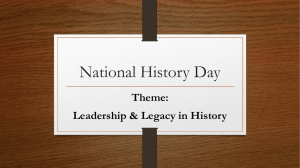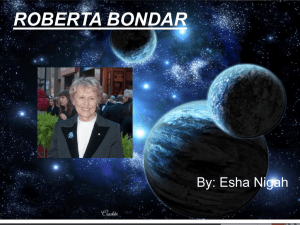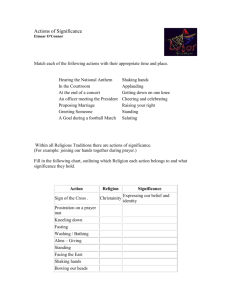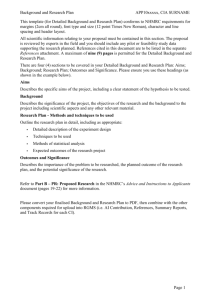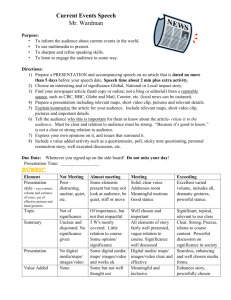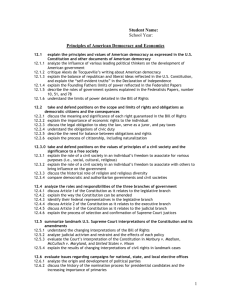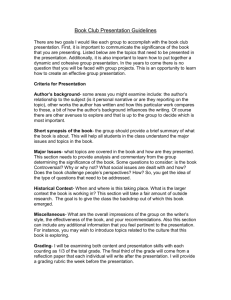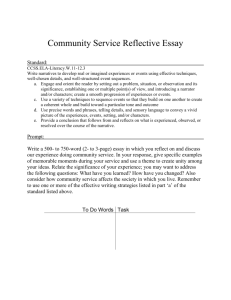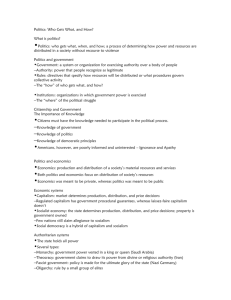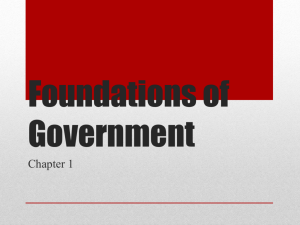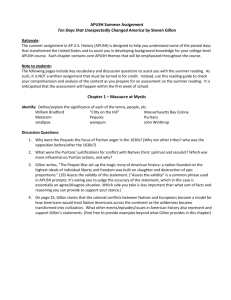Anthropology: American Culture
advertisement
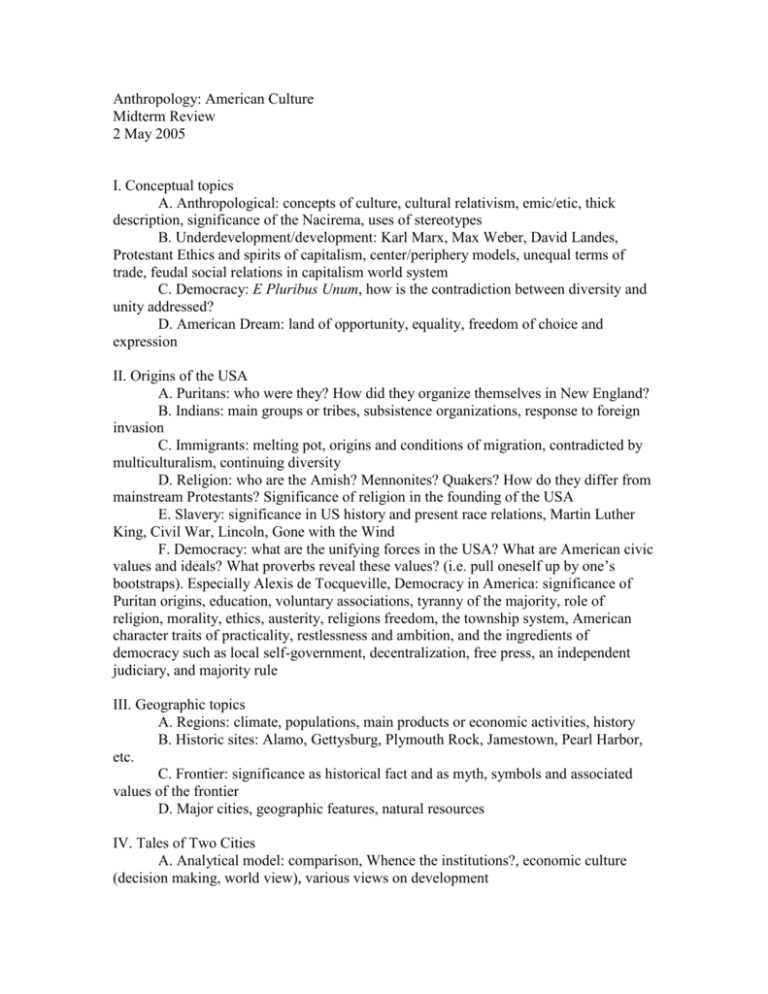
Anthropology: American Culture Midterm Review 2 May 2005 I. Conceptual topics A. Anthropological: concepts of culture, cultural relativism, emic/etic, thick description, significance of the Nacirema, uses of stereotypes B. Underdevelopment/development: Karl Marx, Max Weber, David Landes, Protestant Ethics and spirits of capitalism, center/periphery models, unequal terms of trade, feudal social relations in capitalism world system C. Democracy: E Pluribus Unum, how is the contradiction between diversity and unity addressed? D. American Dream: land of opportunity, equality, freedom of choice and expression II. Origins of the USA A. Puritans: who were they? How did they organize themselves in New England? B. Indians: main groups or tribes, subsistence organizations, response to foreign invasion C. Immigrants: melting pot, origins and conditions of migration, contradicted by multiculturalism, continuing diversity D. Religion: who are the Amish? Mennonites? Quakers? How do they differ from mainstream Protestants? Significance of religion in the founding of the USA E. Slavery: significance in US history and present race relations, Martin Luther King, Civil War, Lincoln, Gone with the Wind F. Democracy: what are the unifying forces in the USA? What are American civic values and ideals? What proverbs reveal these values? (i.e. pull oneself up by one’s bootstraps). Especially Alexis de Tocqueville, Democracy in America: significance of Puritan origins, education, voluntary associations, tyranny of the majority, role of religion, morality, ethics, austerity, religions freedom, the township system, American character traits of practicality, restlessness and ambition, and the ingredients of democracy such as local self-government, decentralization, free press, an independent judiciary, and majority rule III. Geographic topics A. Regions: climate, populations, main products or economic activities, history B. Historic sites: Alamo, Gettysburg, Plymouth Rock, Jamestown, Pearl Harbor, etc. C. Frontier: significance as historical fact and as myth, symbols and associated values of the frontier D. Major cities, geographic features, natural resources IV. Tales of Two Cities A. Analytical model: comparison, Whence the institutions?, economic culture (decision making, world view), various views on development B. Baltimore and Guayaquil in 1820: description and background. How was each city founded? What were the native populations like? What do they have in common? What were the main economic activities? C. Elites and economic culture: internal improvements, rewards for work, gender roles, relations between elites and workers, attitudes towards taxation, religion, the lower classes, and education
